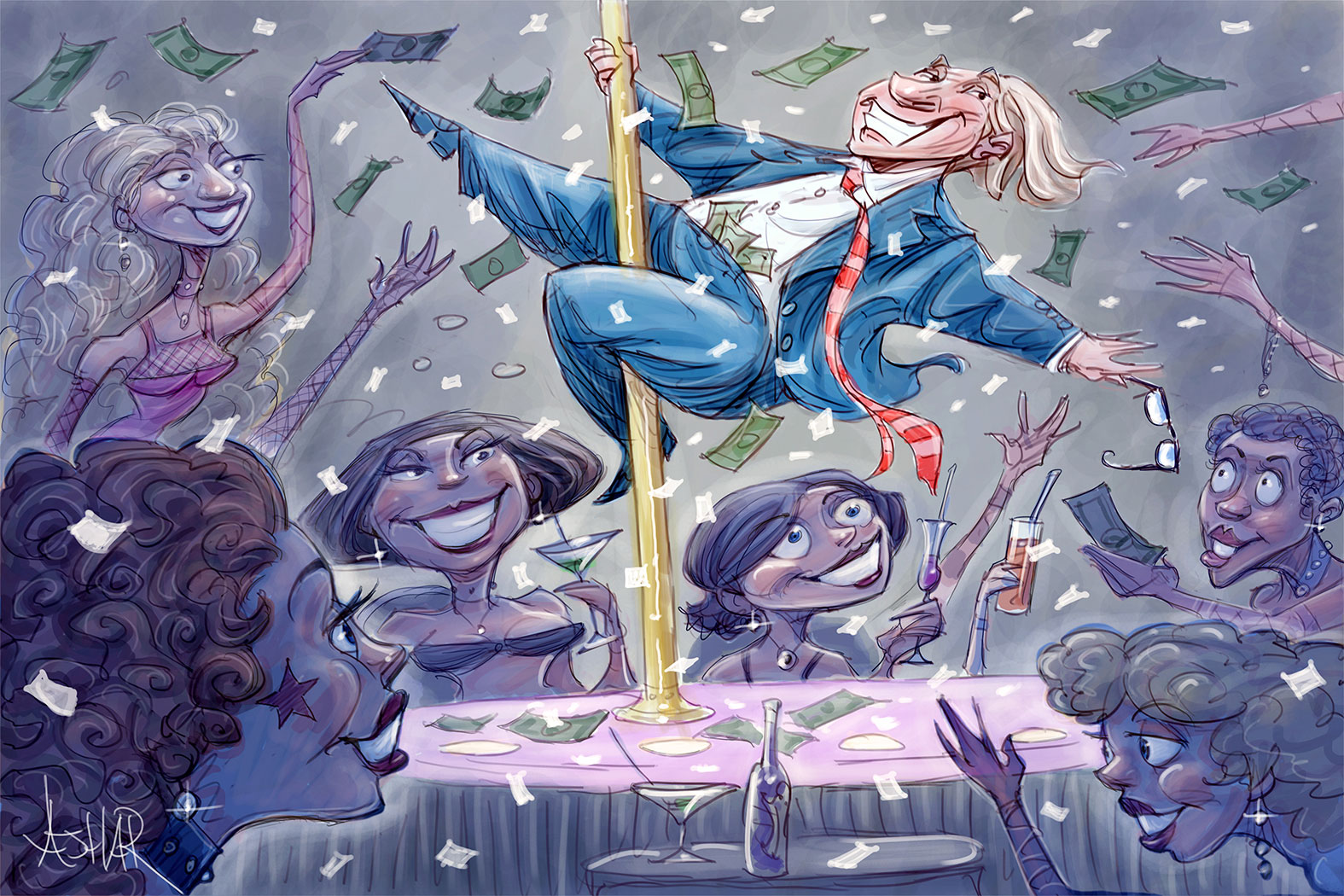Behind the stage is a cave constructed of boulders, the outside of which is covered in coiled ivy and the taxidermied heads and bodies of various mammals. The stage itself looks like it was cut in a single slice from a tree with a massive diameter. On most days, this area is occupied by a series of scantily clad young women. Today, Cary Siegel, wearing dad jeans, a polo, and glasses, takes the stage to dole out fatherly financial advice.
Huh?
See, Dawn Rizos, the soft-spoken owner of The Lodge, has long told the dancers coming through to think of themselves like professional athletes. Some will make good decisions and good investments, and they’ll be able to live comfortably for a long time. Some won’t. “You’ll only be able to make money with your body for so long,” she says.
But over the years Rizos has continued to hear too many stories of dancers making $1,000 to $1,500 in a single night, then showing up with two designer bags, new clothes, new nails, new hair, and no money left for rent.
“As a mother,” she says, “it tears me apart.”
So she called in an expert and invited the dancers to a special breakfast presentation. At 3 pm on a Saturday. “When you work until 4 in the morning,” she says, “3 pm is the morning.”
And that’s why Siegel was on center stage. He’s the self-published author of the book Why Didn’t They Teach Me This in School?: 99 Personal Money Management Principles to Live By.
After the 60 or so attendees, including boyfriends, husbands, and a few members of the kitchen and waitstaff, fill their plates at the brunch buffet, replete with a mimosa station, they settle into the leather chairs in front of the stage, ready for a show.
Siegel, a former Kraft exec who retired at 45, covers a lot of ground. Everything from making valuable social connections—“You meet a lot of people in your line of work,” he says to snickers—to getting a 15-year mortgage if possible, to tips on budgeting and negotiating prices. He talks about how small amounts of money—the cash you might spend on a daily coffee, for instance—add up to large sums over time. (Five dollars a day is more than $18,000 in 10 years.) The audience nods along, and Rizos watches from the back of the room.
The attendees are asked to write down and anonymously submit their worst financial decisions, which are then read aloud: defaulting on loans, lending cash to the wrong people, bad marriages, big houses, not looking harder for scholarships, not paying off credit cards, buying two tickets to Showgirls.
Then Siegel turns to individual questions. What to do if you haven’t paid taxes (“Start paying them”), how to get away from a note on a car your ex-boyfriend crashed (“Yikes”). He is patient and attentive, and often suggests consulting lawyers and accountants.
“My goal is to educate,” he tells the crowd, before some of the women head to the locker rooms to change into that night’s work attire. “I will get a thrill if this helps you.”






